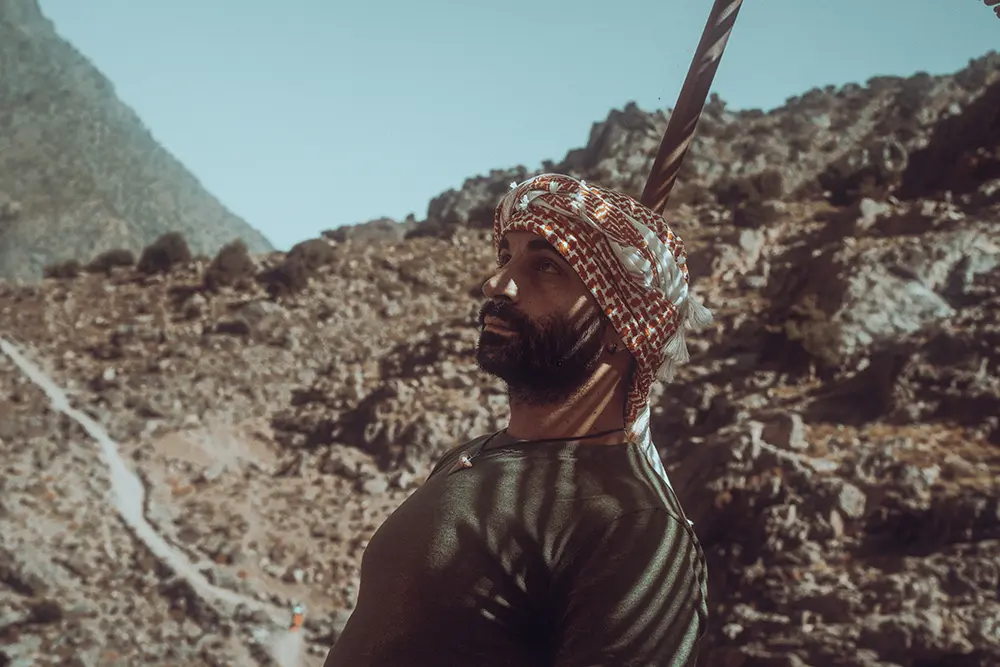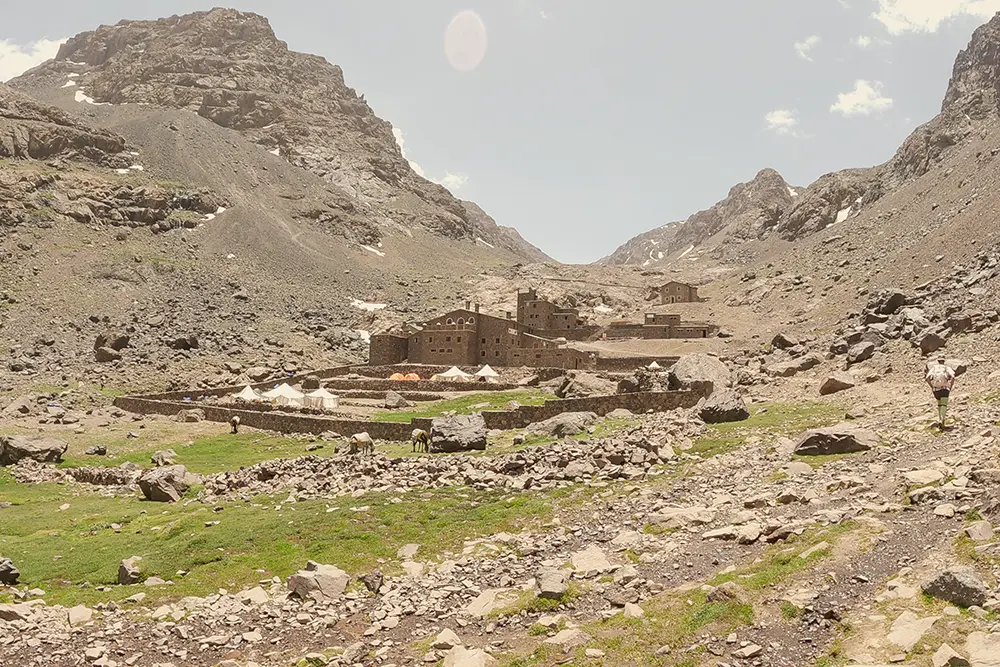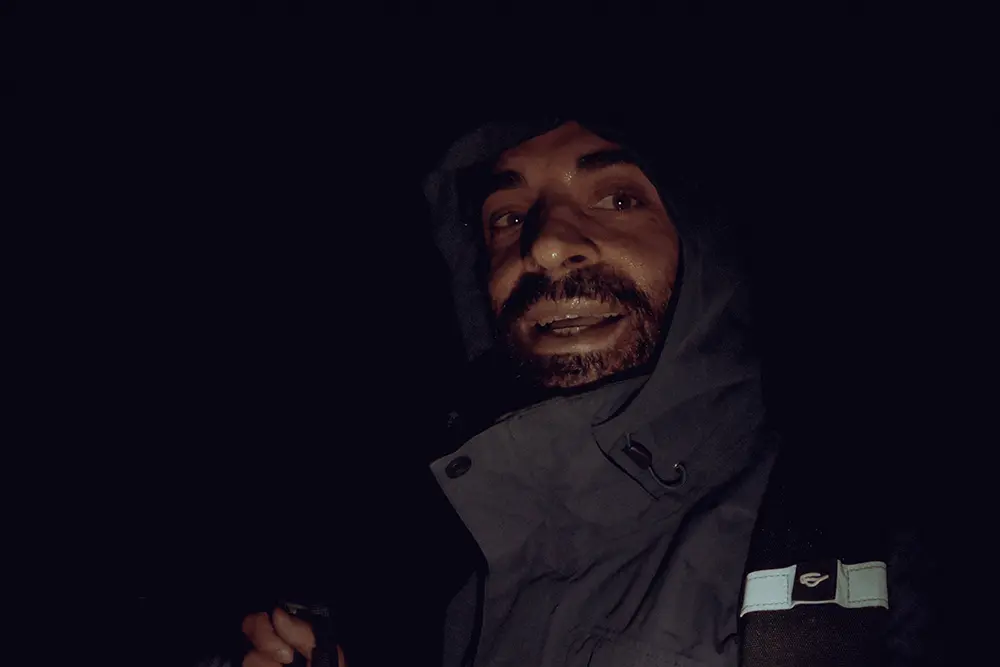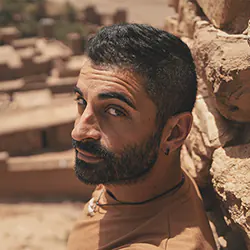There is a strange, perhaps a little stupid, game that I play with myself: the game of personal records. What's the furthest south I've gone? And in the other cardinal points? What is the maximum altitude I reached? And the depth? Which was the longest trek, which was the most challenging?
When I have the chance to set a new personal best, a shiver runs down my spine, filling me with excitement. In those moments, I think about how the dominion of my comfort zone expands dramatically, injecting me with a copious dose of security.
When I have the chance to set a new personal best, a shiver runs down my spine, filling me with excitement. In those moments, I think about how the dominion of my comfort zone expands dramatically, injecting me with a copious dose of security.
Going further, without provoking too much the entity with the black hood and the scythe, many situations that I previously considered problematic are reduced, in severity, on the basis of the updated standards of my self-esteem which, facing much more complicated situations, cannot help but laugh at those precedents
The Toubkal Mountain
With its 4167 meters, Mount Toubkal is the highest peak in Morocco and all of northern Africa. The climb to the top of Toubkal is one of the most popular attractions for travelers who want to test their physical and mental endurance. The undertaking is usually accomplished over two days, with an overnight stay in one of the two refuges available after approximately 10 hours of walking from the start of the Trek.

Organizing the quest
In June 2022, Loretta and I, on a 12-day traveling holiday in Morocco, included the Toubkal trek in our list of must experiences. In all honesty, our logistical preparation for the experience was quite lacking, unlike the physical and mental one. On several occasions, during the journey, we had to resort to the help of the inhabitants of the High Atlas mountains, to patch up our shortcomings! But let's follow an order...
How to get there? Where to spend the night? The guide?
In this article you can find detailed information on renting and driving a car in Morocco. Our choice was precisely that of greater autonomy when traveling within the country, above all because our thirst for adventure usually pushes us to travel along roads that are a little less traveled and, consequently, less served by public transport services. From Marrakech, it is possible to organize the entire trekking of Mount Toubkal, complete with a private transfer from the city to the mountain and back. Obviously, this solution involves a greater expense, both for the transport itself and for the payment of a guide to accompany you on the adventure.
The guide is not an option, it's a must
Whenever possible, Loretta and I prefer to be in complete control of our pace and timing. In this case, hiring Hassan as a guide was a fortunate obligation.
The obligation to have a guide is not so much due to the difficulty of the route which, until a few years ago, could be tackled independently. A news story dating back to December 2018 which saw two Scandinavian tourists killed and beheaded by a terrorist cell, during the Toubkal trek, led the Moroccan authorities to intensify controls in the area (with police checkpoints at various points along the route) and to impose the obligation to have a guide. I was talking about a "fortunate obligation" precisely because Hassan personally remedied, together with the staff of the Imlil accommodation facility, many of our logistical shortcomings such as not having trekking sticks, adequate anoraks, torches for the night (all things that later turned out to be extremely useful).
The obligation to have a guide is not so much due to the difficulty of the route which, until a few years ago, could be tackled independently. A news story dating back to December 2018 which saw two Scandinavian tourists killed and beheaded by a terrorist cell, during the Toubkal trek, led the Moroccan authorities to intensify controls in the area (with police checkpoints at various points along the route) and to impose the obligation to have a guide. I was talking about a "fortunate obligation" precisely because Hassan personally remedied, together with the staff of the Imlil accommodation facility, many of our logistical shortcomings such as not having trekking sticks, adequate anoraks, torches for the night (all things that later turned out to be extremely useful).
The news story led to the death sentence of 3 out of 4 perpetrators and the fourth to life imprisonment. Today and for some time now, the area can be considered safe
The trek
Once you arrive at the starting point, you can park your car (if you have one) in one of the guarded car parks close to the entrance, for a negligible payment. Before embarking on the journey, it will be mandatory to register at the first police checkpoint where it will be advisable to bring with you, in addition to your passport, also a photocopy of the same which will be kept by the officers. It goes without saying that showing up at the checkpoint without a guide will mean an immediate stop to the experience.
Once the bureaucratic part is over, the adventure will finally begin! The landscape will immediately prove to be an inexhaustible source of entertainment. The deep gorges, the streams, the river, the coming and going of local inhabitants accompanied by pack mules, the mountain peaks all around and the fauna will make your neck rotate 360 ??degrees for the entire duration of the walk. The first part of the route is characterized by long stretches with moderate slopes and shorter stretches with very challenging slopes. Here and there, for the approximately 10 hours of walking up to the refuge where you will spend the night, there are small refreshment areas where you can always quench your thirst (although it is advisable to have a good supply of a couple of liters per person) and, sometimes, even feed themselves. In these small oases, it will be possible to drink the delicious juice of local oranges or buy drinks in cans or bottles. During the night at the refuge, later, however, I would have had significant stomach pains which I can trace back to the consumption of orange juice served in glasses roughly rinsed with water only, between one consumption and another.
Once the bureaucratic part is over, the adventure will finally begin! The landscape will immediately prove to be an inexhaustible source of entertainment. The deep gorges, the streams, the river, the coming and going of local inhabitants accompanied by pack mules, the mountain peaks all around and the fauna will make your neck rotate 360 ??degrees for the entire duration of the walk. The first part of the route is characterized by long stretches with moderate slopes and shorter stretches with very challenging slopes. Here and there, for the approximately 10 hours of walking up to the refuge where you will spend the night, there are small refreshment areas where you can always quench your thirst (although it is advisable to have a good supply of a couple of liters per person) and, sometimes, even feed themselves. In these small oases, it will be possible to drink the delicious juice of local oranges or buy drinks in cans or bottles. During the night at the refuge, later, however, I would have had significant stomach pains which I can trace back to the consumption of orange juice served in glasses roughly rinsed with water only, between one consumption and another.

The refuge
The experience in the refuge (we stayed overnight at "Les Mouflons") deserves a paragraph in itself. By reading it, you can make this experience less challenging. The price for a private double room, extremely small, without any particular comfort and with a bed covered in wool blankets whose inhabitants are best not known, is quite high compared to the prices at which, up to that point, we had been get used to it and it is around 75 euros per night. There are cheaper tent solutions (but you need to be equipped for the cold at night) or more comfortable but more expensive solutions. Regardless of the solution chosen, however, it will be necessary to take into consideration that, apart from the overnight stay, dinner and breakfast, everything else will have to be paid separately, absolutely everything! In the shared bathrooms, you will not find toilet paper or soap which you will have to pay for separately, if you have not brought them with you; the cold shower is a service that you will have to pay separately, like towels, shower gel, etc. Prices, for anything, will obviously take into account the fact that, in the area, you will have no alternatives and will therefore be quite high. In the same area, there is a another refuge but it is safe to believe that the quality and prices are similar.
A little annoyed by the situation and far from being inspired by an ice-cold shower, Loretta and I decided to go to bed, just as we were after 10 hours or more of tiring walking. It was certainly challenging to be able to tolerate ourselves in those conditions, with several layers of sweat accumulated and dried in our clothes, with not exactly pleasant smells and with tired feet, lying in a bed that didn't look much better than us. However, wanting to look at bright side of it, this too was an integral part of that widening of the comfort zone I wrote about at the beginning and of the memorability of the experience itself.
A little annoyed by the situation and far from being inspired by an ice-cold shower, Loretta and I decided to go to bed, just as we were after 10 hours or more of tiring walking. It was certainly challenging to be able to tolerate ourselves in those conditions, with several layers of sweat accumulated and dried in our clothes, with not exactly pleasant smells and with tired feet, lying in a bed that didn't look much better than us. However, wanting to look at bright side of it, this too was an integral part of that widening of the comfort zone I wrote about at the beginning and of the memorability of the experience itself.
The journey continues
At around 4 in the morning, following breakfast and with a dark, starry sky, with the cold having taken over the ridges, we set off again for the last stretch of the route towards the top. This time, the slope will be extreme from start to finish and will be characterized by points of particular difficulty, passages on hard snow (where trekking poles will reveal all their usefulness), short stretches of real climbing and, with the approach to the summit, from cold gusts of wind which, in contact with the inevitable sweat, can give icy shivers to those who, like me, are not equipped with the right protection (I was wearing the windbreaker rented to me by a local inhabitant with a simple t-shirt). In the dark of the night, looking around in search of the summit was one of the most trying actions from a psychological point of view. The only way to identify the peaks was to look up and intercept the points where no stars could be seen (precisely because they were covered by the mountains) and the darkness became total. Sometimes, much higher than us, we could see the lights of those who had left before us and thinking, with the tiredness accumulated from the day before, of having to reach that point, so vertically distant from us and which was not yet the top, put the mental stability of the experience to the test.

I'm ridiculously tired and I still have to get up there? And "up there" isn't even the top? Where is the top? See that peak? Behind that and higher!
To the peak and back
Reaching the summit of Toubkal is, without a doubt, one of the most rewarding experiences of my life. More beautiful than the satisfying view, stronger than the tremors I felt from the cold was the satisfaction of having succeeded in the undertaking, of being able, from that moment on, to think back to the difficulties of daily life and see them, somehow, as smaller. Of course, we are not talking about Everest or K2, I fully realize that, but you can be sure that, if you are not a professional climber, the experience on Mount Toubkal will put you in front of a significant amount of physical and mental stress. Furthermore, compared to its bigger Asian brothers, the Toubkal is a much more accessible trek also from an economic point of view.

At this point, however, there is not much left to do. Staying up, more than ten minutes or a quarter of an hour, doesn't make much sense and the axiom that sees the path as more important than the finish line itself is confirmed
For the descent there are two options: stay overnight in the refuge again or do the whole pitch up to the car park. Our schedule for the Morocco tour implied the maximum limitation of downtime and, therefore, we had already taken into account the direct descent to the car. With hindsight, the choice proved to be the right one if only to avoid another uncomfortable night in that refuge. The mistake not to make, however, is to think that the descent is a walk in the park. Going up leads to stress on some muscles (thighs and calves first and foremost) but going down stresses others (shins) and, above all, the joints which, lacking the support of the adjacent muscles, which are all too tired, could find themselves absorbing the vibrations and the shocks of a descent which will in any case last longer than the individual stages of the climb!
I hope I have inspired you. If the article has left you something, likes, shares and comments are greatly appreciated. If you want to read more similar content,
subscribe to the NEWSLETTER and/or follow me on INSTAGRAM!


